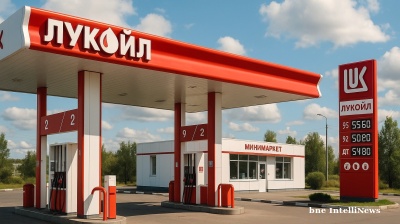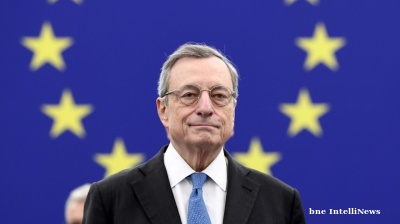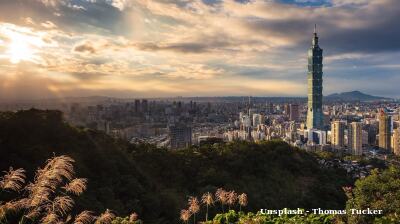"The question is not whether we will win, but by how much?” said Albanian Prime Minister Edi Rama in video posted on his social networks ahead of the country’s May 11 general election.
The election will pit Rama’s Socialist Party against its main rival, the opposition Democratic Party led by former president and prime minister Sali Berisha, who promises to ‘make Albania great again’.
But even with the help of US President Donald Trump’s former campaign manager, Chris LaCivita, Berisha’s efforts to unseat the Socialists are likely to prove unsuccessful. Pre-election polls indicate the Socialists, which have been in power since 2013, are heading for yet another term in office.
A Piepoli poll conducted for Report TV indicates that the party is on course to secure 50.5% of the vote, boosting its parliament seats by one to 75, enough to form a government independently. The Democratic Party-led Alliance for a Great Albania is projected to receive 37% of the vote, cutting its seats from 63 in the current parliament to 54.
Similarly, a McLaughlin survey, carried out for Top Channel, shows backing for the Socialist Party at 49.9%, while the Democratic Party-led alliance trails with 34.9%.
Both polls, as well as a survey by Euronews, show strong support for the Socialists in the Albanian capital Tirana.
Rama appears confident ahead of the vote, musing on how decisively the Socialists will defeat their opponents. “Whether we will win is not a question. Unquestionably we will win. But how much? What power will May 11 give us, the Albanian people. Will we simply be a government, a representation, or will we be a representation with greater popular support than what we have today,” he said, according to a transcript of the video published by CNA.
The socialists swept to power in 2013, going on to win the next two elections in 2017 and 2021. The party initially ruled in coalition with former president Ilir Meta’s Democratic League of Socialists (now the Freedom Party), but from 2017 was able to dispense with the smaller party’s support and rule alone.
Throughout this time, the Democrats have not been able to make a substantial dent in the ruling party’s popularity either via the ballot box or on the streets.
The party’s reputation was damaged by a lengthy power struggle between Berisha and its former leader ex-Tirana mayor Lulzim Basha that culminated in Berisha’s supporters storming the party headquarters in January 2022.
Highlighting ongoing tensions within the party, a mass brawl broke out among Democratic Party supporters at a rally in Elbasan on May 7.
Moreover, Berisha has been personally sanctioned by the US since 2022, accused by former secretary of state Antony Blinken of “significant corruption”. Efforts to have the designation lifted, including by appointing lobbyists close to Trump, did not succeed in time for the election.
The Freedom Party, once a third force in Albanian politics, has dwindled in influence. Meanwhile two new parties, Shqipëria Bëhet and Mundësia, are expected to clear the threshold to enter the new parliament.
Ahead of the May 11 election, campaign environment has been fairly subdued, marked more by personal attacks and allegations of corruption than by substantive policy debate, according to a preliminary assessment by the OSCE’s Office for Democratic Institutions and Human Rights (ODIHR). Observers noted a “high degree of polarisation and mistrust between the two main parties”.
Economic policy has emerged as one of the dominant campaign issues, as Rama and Berisha trade barbs over growth, taxes and the cost of living.
Rama has touted his government’s record on GDP growth, EU integration progress and falling unemployment. “When we took office, GDP was under €10bn. Today it is €25bn,” Rama told supporters in Burrel, northern Albania, on May 2. “By 2030, we will reach €35bn.”
Rama pointed to data from international institutions showing Albania’s GDP has grown by 109.6% since 2013, outpacing its regional peers. He also highlighted improvements in unemployment and per capita income, claiming a drop in joblessness from 18% to 8.8% and a tripling of exports since his party took power. The prime minister has made similar points during other recent campaign speeches.
Large infrastructure projects have also featured heavily during the Socialists’ three terms in power, and are much promoted on Rama’s various social media outlets.
On May 8, just three days before the election, the prime minister ceremonially welcomed the first flight to the new airport at Vlora, in the heart of the Albanian riviera, describing it in a Facebook post as “another example of pride of Renewed Albania”.
Another theme pushed in the Socialists’ campaign is Albania’s progress towards EU accession. The party was given candidate status in 2014, a year after the Socialists came to power, and is now at the negotiation stage, with a potential accession date put forward of 2030. In a recent boost, Albania has been decoupled in the accession process from its neighbour North Macedonia, whose progress had become bogged down in bilateral disputes with Greece and Bulgaria.
More broadly, as pointed out in a bne IntelliNews oped, Albania has gone from an isolated a poverty stricken country at the end of the communist era to a fast-growing economy, staunch Nato member and reliable member of the Western international community.
Meanwhile, Berisha has focused on the struggles of specific groups such as small businesses, farmers and exporters, promising sweeping tax cuts and subsidies. “We will reduce taxes and do everything so that business and tourism in Tropoja and all of Albania can breathe,” Berisha declared at a rally in Tropoja, northeastern Albania, on May 4.
Berisha outlined a programme pledging a minimum wage of €500 and an average wage of €1,250, as well as fivefold increases in agricultural subsidies. He also promised a consumer card that would reduce the cost of basic goods by 20% for vulnerable families.
“We will create the most business-friendly climate in Europe,” Berisha said in Peqin on May 3, vowing to cut VAT to 15% and introduce a flat 10% tax for medium and large enterprises. He also proposed a scheme to compensate exporters for losses due to the euro’s depreciation.
But while Albania’s leading politicians compete on subjects such as wages and pensions, the campaign has also been characterised by personal insults.
Albania’s two leading politicians have taunted each other with owl-themed jibes, with Rama calling Berisha a “swamp owl”, while the opposition leader argued the bird is a symbol of wisdom. Rama often appears in social media videos holding a model owl, to mock his opponent.
Berisha recently accused the Rama government of living in luxury while citizens struggle on €140 pensions. “Ministers dress like princesses,” he said, pledging that “the difficult situation will end on May 11”.
Rama has responded by highlighting his opponent’s age; at 80, Berisha is two decades older than the prime minister. “An ancient politician like an archaeological find,” he described him on May 8, adding that the opposition leader is “hopeless” and “desperate”.
Accusations of corruption have flown from both sides during the campaign.
Berisha frequently accuses Rama of turning Albania into a narco-state, and blaming his government for crime in the country.
The ruling Socialists’ reputation has taken a hit from the arrest of Erion Veliaj, the mayor of Tirana and a high-profile figure within the party.
The OSCE/ODIHR’s April 28 report noted that campaign discourse has been marred by accusations of corruption and misuse of state resources.
However, the Democratic Party has also been hit by corruption scandals. Berisha was charged by the Special Structure against Corruption and Organised Crime (SPAK) in 2024 in a corruption case concerning the privatisation of Partizani sports club land.
Contracts with US lobbying firms have failed to secure a lifting of the sanctions ahead of the election; instead SPAK has opened a probe into how the Democrats managed to pay a reported $6mn fee for one firm’s services.
Overall, Albania’s May 11 general election represents a test for the country’s democratic progress, taking place after changes to the electoral framework and in a politically charged atmosphere, international observers said at the end of April.
The OSCE/ODIHR said the 2025 vote is “an important milestone for the country” and a critical moment in Albania’s efforts to strengthen democratic institutions during ongoing accession negotiations with the European Union.
The elections will be the first in Albania to allow out-of-country voting, with approximately 246,000 of the total 3.7mn registered voters casting ballots from abroad via postal voting. The Central Election Commission (CEC) has led a broad outreach campaign to inform citizens of the new procedures, including targeted voter education for minorities and people with disabilities.
Features

Russian e-commerce giant Wildberries goes on a mysterious M&A spree
Russian e-commerce giant goes on M&A spree Almost a year after the controversial merger with a leading outdoor advertising firm, Russia’s leading e-commerce site Wildberries is indulging in a fresh bout of eyebrow raising deals.

US expands oil sanctions on Russia
US President Donald Trump imposed his first sanctions on Russia’s two largest oil companies on October 22, the state-owned Rosneft and the privately-owned Lukoil in the latest flip flop by the US president.

Draghi urges ‘pragmatic federalism’ as EU faces defeat in Ukraine and economic crises
The European Union must embrace “pragmatic federalism” to respond to mounting global and internal challenges, said former Italian prime minister Mario Draghi of Europe’s failure to face an accelerating slide into irrelevance.

US denies negotiating with China over Taiwan, as Beijing presses for reunification
Marco Rubio, the US Secretary of State, told reporters that the administration of Donald Trump is not contemplating any agreement that would compromise Taiwan’s status.




